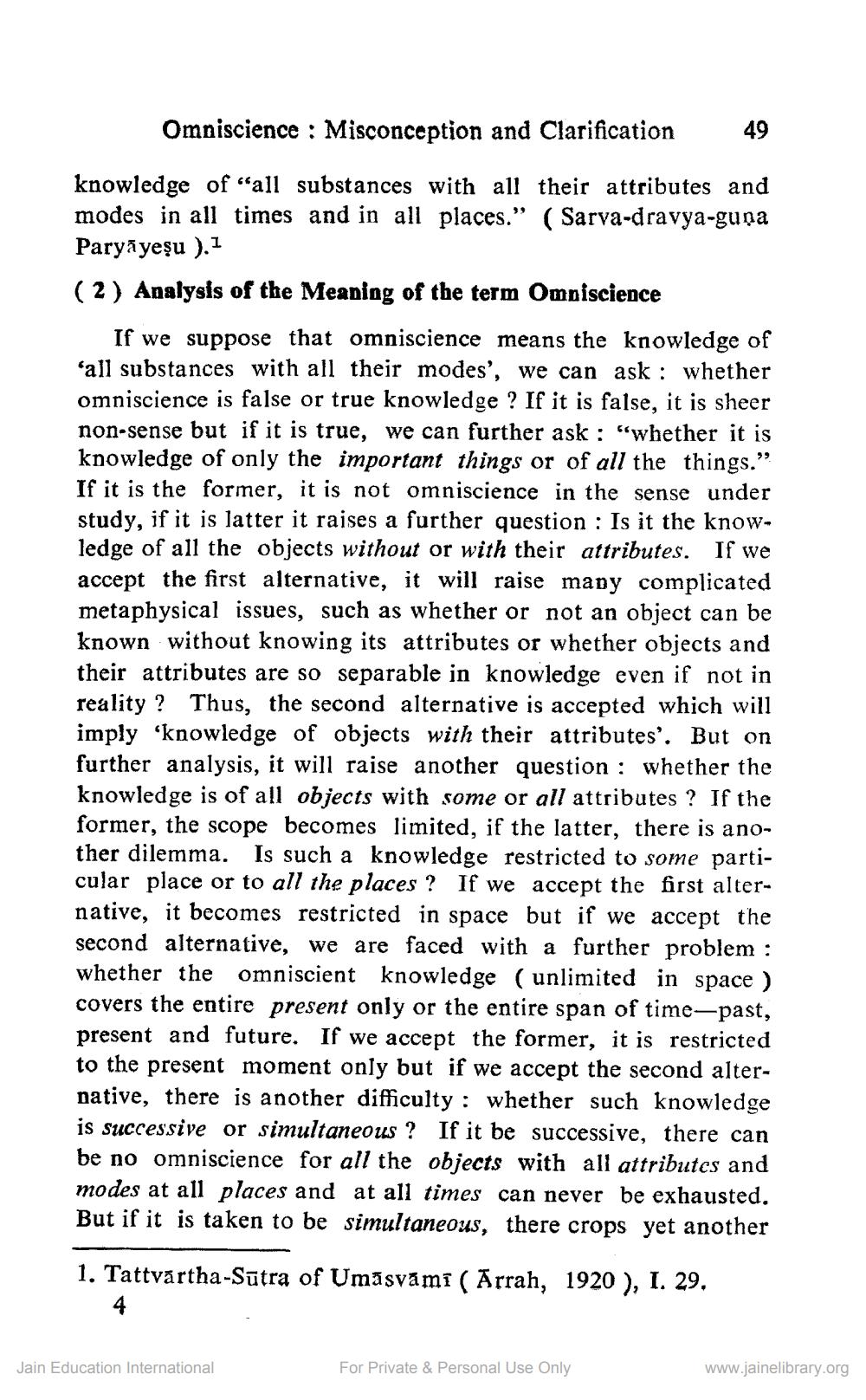________________
Omniscience: Misconception and Clarification
knowledge of "all substances with all their attributes and modes in all times and in all places." (Sarva-dravya-guna Paryayeşu ).1
(2) Analysis of the Meaning of the term Omniscience
If we suppose that omniscience means the knowledge of 'all substances with all their modes', we can ask whether omniscience is false or true knowledge? If it is false, it is sheer non-sense but if it is true, we can further ask: "whether it is knowledge of only the important things or of all the things." If it is the former, it is not omniscience in the sense under study, if it is latter it raises a further question: Is it the knowledge of all the objects without or with their attributes. If we accept the first alternative, it will raise many complicated metaphysical issues, such as whether or not an object can be known without knowing its attributes or whether objects and their attributes are so separable in knowledge even if not in reality? Thus, the second alternative is accepted which will imply 'knowledge of objects with their attributes'. But on further analysis, it will raise another question: whether the knowledge is of all objects with some or all attributes? If the former, the scope becomes limited, if the latter, there is another dilemma. Is such a knowledge restricted to some particular place or to all the places? If we accept the first alternative, it becomes restricted in space but if we accept the second alternative, we are faced with a further problem : whether the omniscient knowledge (unlimited in space) covers the entire present only or the entire span of time-past, present and future. If we accept the former, it is restricted to the present moment only but if we accept the second alternative, there is another difficulty: whether such knowledge is successive or simultaneous? If it be successive, there can be no omniscience for all the objects with all attributes and modes at all places and at all times can never be exhausted. But if it is taken to be simultaneous, there crops yet another
1. Tattvartha-Sutra of Umāsvāmī (Arrah, 1920), I. 29.
Jain Education International
49
For Private & Personal Use Only
www.jainelibrary.org




